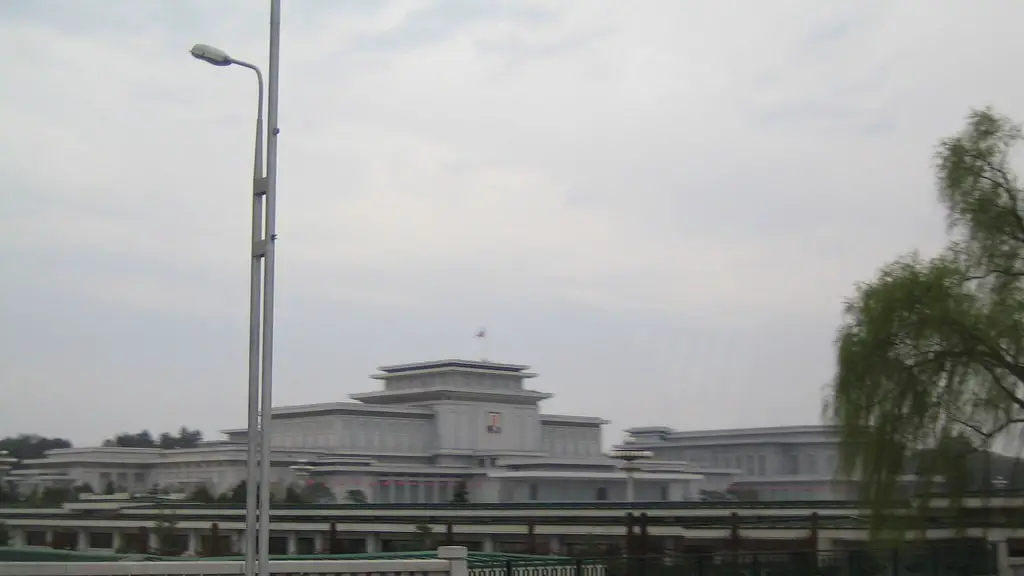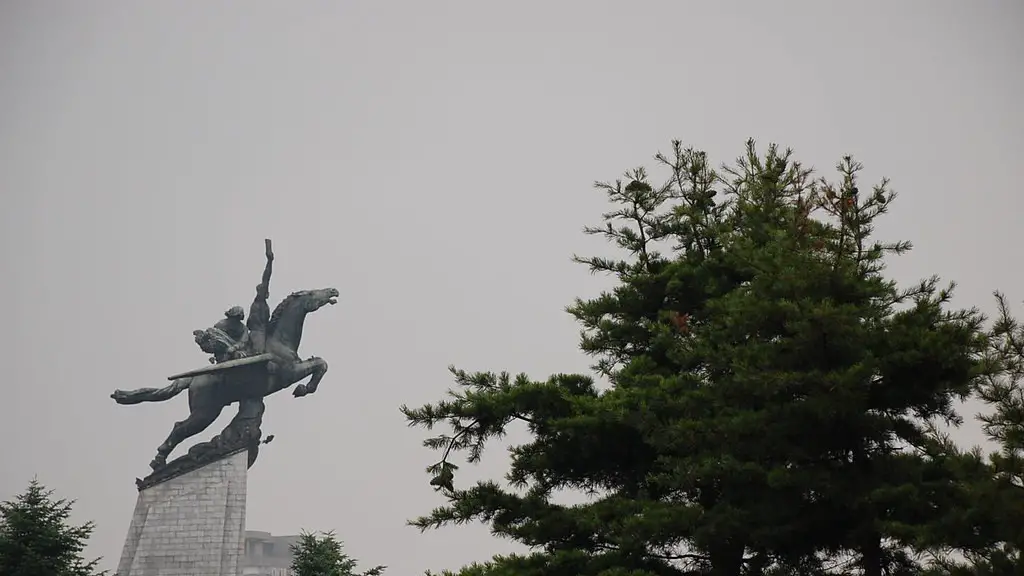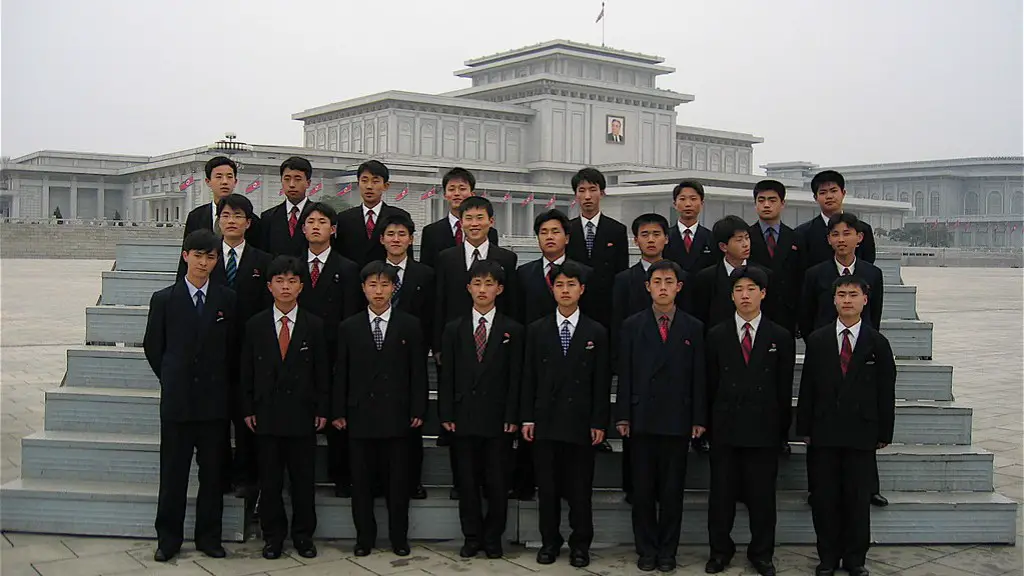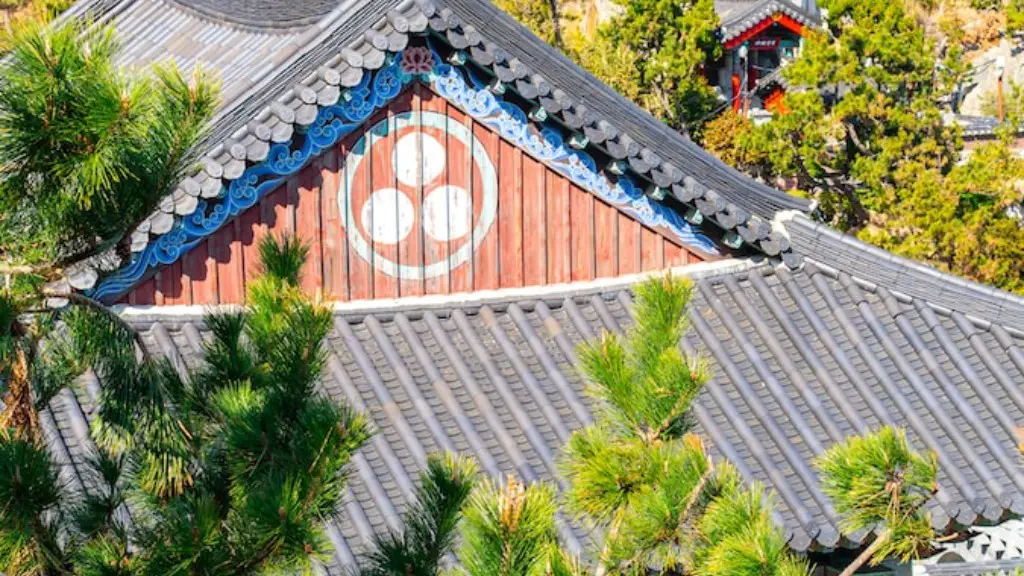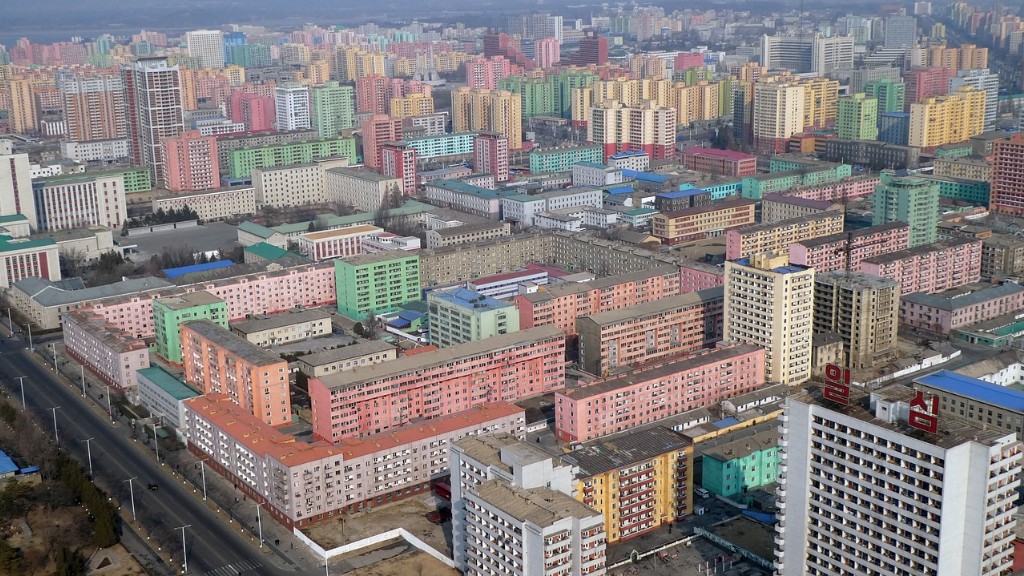Who Is In Power In North Korea
North Korea is a mysterious and secretive country, and its leadership is shrouded in secrecy and mystery. Its leader, Kim Jong-Un, has been in power since 2011, and is the third leader of the authoritarian state.
Since taking control, Kim Jong-Un has tried to consolidate his grip on power by creating an atmosphere of fear, and by rallying support from the North Korean military. He has also made efforts to modernize and strengthen the economy, although most of the changes have been slow and incremental. The country’s nuclear program has been a key part of his government’s policy.
The government is a highly centralized one-party dictatorship, with a long and oppressive political system which brooks no criticism or dissent. The constitution, which was amended in 2012, gives Kim Jong-Un ultimate control over the government and its policies. The country’s ruling party, the Workers’ Party of Korea, is also highly centralized, and has a strict application protocol.
The economy, meanwhile, is centrally planned and highly isolated, with few foreign investments. To sustain its economy, the government heavily relies on foreign aid, especially from China and Russia. The country remains heavily reliant on imports for basic necessities such as food and fuel. The economy is highly vulnerable to sanctions, and has been subject to several rounds of economic sanctions from the United Nations.
The country also has one of the most reclusive and repressive governments in the world. Citizens are not allowed to leave the country without permission, and access to information and the internet is severely restricted. Human rights abuses are reportedly widespread, and the government continues to commit a range of abuses, including arbitrary arrests and detention, political executions and torture.
Despite these issues, Kim Jong-Un remains firmly in power in North Korea, through a combination of ruthlessness, a supportive military and an effective propaganda machine. Outside observers largely remain in the dark as to what life is like in North Korea, as few outsiders are allowed access.
Education in North Korea
Education in North Korea is an interesting subject and shed some insight on life in the country. Education has been heavily controlled by the state since Kim Il Sung, the first leader of North Korea, came to power in 1948. The majority of North Korean students attend public schools, while students of a higher social status can attend private schools. Pyongyang is the only city with a university.
Education focuses on indoctrination and teaching loyalty to the government and its ideology, with opinions and values being taught through the state-sanctioned curriculum. Most classes include mandatory physical training, and military classes are also offered. The government has been known to spy on students, and those found to be critical of the government are usually sent to labour camps or re-education camps.
Students are also assessed in terms of their loyalty to the government and its ideology, and those who pass these assessments are typically given more prestigious opportunities and positions in the future. Despite this level of control, there are reports of some college students taking part in unofficial educational activities, such as studying literature, art and foreign culture, which are still heavily monitored.
Education in North Korea is seen as a tool for maintaining control over the population and for encouraging loyalty to the government. It is tightly controlled and does not provide opportunities for independent thought or expression.
Freedom of Expression
The freedom of expression in North Korea is highly limited and severely suppressed by the government. The state maintains control over the media, including newspapers and television, which are heavily censored and used as a tool of propaganda. These outlets typically praise the government and its leader, and criticize potential “enemies” of the state.
access to foreign media, including the internet, is restricted and heavily monitored. Outside visitors and those who are considered to be potential “enemies of the state” including religious and political dissidents, face surveillance and possible arrest or detention. Likewise, any critical comments or negative opinions about the government can lead to arrest, torture or even death.
The government has also been known to employ various tactics, such as psychological warfare, to silence and intimidate perceived opponents, including dissidents, journalists and human rights activists. Despite this, there have been recent signs of small progress, such as the release of some political prisoners and an increasing focus on economic development.
The freedom of expression in North Korea is a major concern, as the oppressive and authoritarian regime severely restricts freedom of speech and other basic civil liberties. Those who are critical of the government are at risk of retribution and even death.
International Relations
North Korea’s international relations are complex and tumultuous, with the majority of countries maintaining a high level of hostility towards the country. North Korea has been particularly hostile towards its neighbour South Korea, which it sees as an usurper of North Korean political, financial and military power. It has also been hostile towards the United States and its allies in the past, although this has somewhat improved since Kim Jong Un took power.
North Korea has attempted to improve its international relations and ties, particularly with China and Russia, its two closest allies. But these attempts have been hampered by a range of issues, including its nuclear weapons program, international sanctions and its human rights record. It has also sought to diversify its international ties, but has had limited success in doing so.
Its relations with South Korea are especially strained, and inter-Korean talks have been sporadic and generally unsuccessful in recent years. Despite this, there have been some advances in the form of high-level meetings, a shared Olympic team and the re-opening of the Gaeseong industrial complex.
North Korea’s international relations remain largely hostile and confrontational, with the majority of countries continuing to oppose, isolate and sanction the country. Its nuclear program and human rights record are major impediments to meaningful diplomatic advances.
Human Rights Abuses
The human rights situation in North Korea is one of the worst in the world. Political prisoners are subjected to harsh and cruel conditions, including torture and public executions. Freedom of speech and assembly are severely restricted, and those who are deemed to be “disloyal” to the government are subject to arbitrary arrest and harsh punishments.
The regime also denies access to basic services such as healthcare, education and food. International aid agencies have reported a high incidence of malnutrition and starvation among the population, exacerbated by international sanctions. The country also has a long history of using forced labor for economic gain, in an effort to maintain tight control over its people.
The government has also been accused of using various tactics to silence critics, including surveillance, fearmongering and character assassination. In recent years, there have been reports of increasing crackdowns on those who are perceived to be a threat to the regime, including human rights activists and dissidents.
The human rights situation in North Korea has not improved in recent years and there are reports of increasing abuses. The regime maintains a tight grip on its population, allowing no room for any criticism or communication with the outside world.
Living Conditions in North Korea
Living conditions in North Korea are extremely difficult and challenging for the vast majority of the population. Per capita incomes are among the lowest in the world, with poverty widespread. The majority of the country’s buildings are old and run-down, and access to modern amenities is limited. The healthcare system is underfunded, and there is a lack of basic medical supplies and access to international medical aid.
Food security is a major concern, as the population is heavily reliant on government-subsidized food rations. These rations are often inadequate, and many people are forced to turn to the black market to secure the food they need. In recent years, there have been reports of increasing levels of malnutrition, particularly among children.
Access to electricity and running water is limited, and goods and services are often difficult to obtain. The country is also highly polluted, with dangerous levels of industrial and agricultural pollutants in the air.
The majority of the populationlive in extreme poverty, and are faced with challenges such as inadequate housing, food insecurity, lack of basic services and limited access to the outside world. Living conditions in North Korea are extremely difficult, and have been deteriorating in recent years.
